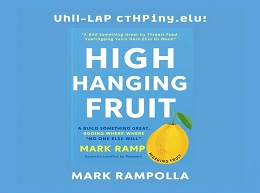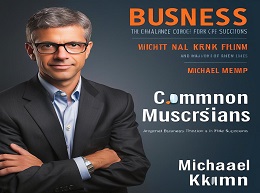The Lean Product Lifecycle: A Playbook for Making Products People Want

Navigating the Product Lifecycle Journey
"The Lean Product Lifecycle: A Playbook for Making Products People Want" offers a comprehensive guide to navigating the product development journey efficiently and effectively. This review delves into the key concepts and strategies outlined in the book, providing readers with practical insights and inspiring examples to help them create products that meet customer needs and drive success in the market.
Understanding the Lean Approach: Principles for Product Success
Subheadings like "Embracing Lean Principles" and "Fostering a Culture of Continuous Improvement" explore the foundational principles of the Lean Product Lifecycle methodology. Examples of companies that have embraced lean practices, such as Toyota and Dropbox, illustrate how a focus on efficiency, collaboration, and customer value can lead to product success and market leadership.
Discovering Customer Needs: Identifying Market Opportunities
The book emphasizes the importance of understanding customer needs and market dynamics to inform product development decisions. Subheadings like "Conducting Customer Research" and "Validating Market Demand" delve into strategies for gathering insights and validating product ideas with real customers. Examples of companies that have successfully identified market opportunities through customer research, such as Netflix and Spotify, demonstrate the value of listening to customer feedback and adapting products to meet their evolving needs.
Iterating and Prototyping: Rapidly Testing and Refining Ideas
Iterative development and prototyping are key components of the Lean Product Lifecycle, enabling teams to quickly test and iterate on product concepts. Subheadings like "Building Minimum Viable Products (MVPs)" and "Gathering User Feedback" explore strategies for rapidly testing ideas and refining products based on user feedback. Examples of companies that have embraced rapid iteration and prototyping, such as Airbnb and Instagram, showcase how a relentless focus on experimentation and user-centric design can lead to product breakthroughs and market success.
Scaling and Growth: Driving Product Adoption and Expansion
As products mature and gain traction in the market, scaling becomes a critical focus area for product teams. Subheadings like "Scaling Your Product" and "Expanding Market Reach" delve into strategies for driving product adoption and expanding market reach as products move through the growth stage of the lifecycle. Examples of companies that have successfully scaled their products and achieved widespread adoption, such as Uber and Facebook, illustrate the importance of strategic growth initiatives and effective scaling strategies in achieving long-term success.
Continuous Improvement: Evolving Products for Ongoing Success
The Lean Product Lifecycle emphasizes the importance of continuous improvement and adaptation to stay ahead in a rapidly changing market landscape. Subheadings like "Iterating Based on Feedback" and "Adapting to Market Trends" explore strategies for evolving products and staying relevant in the face of shifting customer needs and market dynamics. Examples of companies that have embraced a culture of continuous improvement, such as Amazon and Google, demonstrate how a commitment to innovation and agility can drive sustained product success and market leadership.
Empowering Product Teams to Thrive
"The Lean Product Lifecycle" offers product teams a practical playbook for creating products that resonate with customers and drive success in the market. Through actionable strategies, inspiring examples, and invaluable insights, the book empowers product teams to navigate the complexities of the product development journey with confidence and creativity. Whether you're a product manager, designer, or entrepreneur, "The Lean Product Lifecycle" provides the tools and techniques you need to craft successful products that make a meaningful impact on customers and drive business growth.













